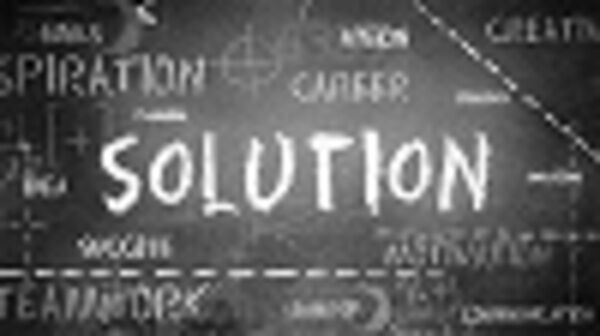The Future of Work: How HR Can Prepare for the Next Decade (Guest blog)
by Ann Gables
https://www.pexels.com/photo/photo-of-people-near-wooden-table-3184418/
The world of work is undergoing a profound transformation driven by technological advancements, shifting demographics, and changing employee expectations. As we stand on the cusp of a new decade, HR professionals find themselves at the forefront of this evolution. The future of work is a landscape filled with opportunities and challenges. There are many ways in which HR can prepare for the next decade, equipping organizations to thrive in an ever-changing environment.
The journey ahead involves many things, from embracing remote work and hybrid models to enhancing employee well-being and mental health support. These strategies are not just essential for adaptation but also for staying competitive in a globalized world.
Embracing Remote Work and Hybrid Models
At the dawn of the new decade, the nature of work is evolving at an unprecedented pace. The role of HR is to lead and support organizational transformation. One of the most conspicuous changes in the world of work is the rapid embrace of remote work and hybrid models. The COVID-19 pandemic catapulted remote work into the spotlight, revealing its potential to reshape how businesses operate.
HR professionals must adapt to this shift and take the lead in guiding their organizations through it. Remote and hybrid work arrangements offer newfound flexibility to employees and access to a broader talent pool for employers. However, they also present unique challenges in terms of maintaining collaboration, employee engagement, and ensuring data security.
HR can prepare for the next decade by developing strategies that embrace the benefits of remote work while mitigating its challenges. This includes implementing robust remote work policies, investing in communication and collaboration tools, and fostering a culture that values results over mere presence.

https://www.pexels.com/photo/woman-in-blue-suit-jacket-2422293/
Upskilling and Reskilling for a Changing Workforce
Creating a culture of learning is vital, and HR must champion upskilling and reskilling to ensure their organizations remain competitive and adaptable in the next decade. The skills that were once in high demand may become obsolete. New competencies will continually emerge as technology advances and industries evolve.
The role of HR extends beyond recruitment; it encompasses nurturing and enhancing the skills of the existing workforce. This is where upskilling and reskilling come into play. Rather than seeking external talent for every new need, organizations can harness the untapped potential within their current employees. HR professionals must identify skill gaps, design training programs, engage external experts and foster a culture that promotes continuous learning.
HR safeguards the organization against skill shortages and empowers employees to remain relevant in an ever-changing job market. Embracing a culture of learning is the compass that will guide organizations through the uncertain terrain of the next decade.
Leveraging Technology for HR Efficiency
As we step into the next decade, technology continues to be a driving force in the world of work. The role of HR in this digital era goes beyond paperwork and compliance; it's about transforming HR processes and delivering strategic value.
The digital revolution has ushered in a wave of innovations like artificial intelligence, data analytics, and automation, all of which can revolutionize HR operations. From applicant tracking systems that streamline recruitment to AI-driven analytics that aid in talent management, technology offers HR professionals a suite of tools to make data-driven decisions and deliver a seamless employee experience.
HR must take the lead in adopting and adapting to these technological advancements. Embracing these tools can significantly boost efficiency, but it also frees HR professionals to focus on strategic initiatives, such as employee engagement, culture development, and talent retention. The future of work will belong to organizations that can leverage technology effectively.

https://www.pexels.com/photo/woman-wearing-purple-shirt-holding-smartphone-white-sitting-on-chair-826349/
Enhancing Employee Well-being and Mental Health
The well-being and mental health of employees take center stage. And HR plays a pivotal role in nurturing a healthier and more resilient workforce. Beyond the traditional HR functions, the role of HR has expanded to become a guardian of employee well-being and mental health.
The pressures of the modern workplace, compounded by the challenges brought about by the pandemic, have highlighted the need for proactive measures to support employee mental health. HR professionals must address this issue and champion a culture that prioritizes well-being from the top down.
To prepare for the next decade, HR departments must implement mental health initiatives, destigmatize discussions around mental health, and provide resources and support systems that empower employees to thrive both personally and professionally. By doing so, organizations can expect higher productivity, increased employee engagement, and reduced absenteeism.

https://www.pexels.com/photo/successful-multiethnic-business-colleagues-in-modern-office-6457579/
Cultivating a Diverse and Inclusive Workplace
In the next decade, the business landscape will continue to become more diverse and globally interconnected. HR must lead the charge in cultivating a workplace that celebrates diversity and fosters inclusivity. The role of HR in this context is not only to comply with diversity and inclusion (D&I) regulations but to create an environment where every voice is heard and valued.
Diversity encompasses a broad spectrum, including differences in gender, race, age, sexual orientation, and more. HR professionals must recognize the multifaceted nature of diversity and implement strategies to attract, retain, and promote a diverse workforce. Beyond diversity, inclusivity is equally vital. It's about creating a culture where all employees feel welcomed and empowered to contribute their unique perspectives.
HR can prepare for the next decade by incorporating D&I into their hiring practices, offering diversity training, and establishing inclusive policies and practices. Building a diverse and inclusive workplace isn't just a moral imperative; it's a business necessity. Diverse teams bring a broader range of ideas and perspectives, leading to increased innovation and better decision-making. HR can lay the foundation for a stronger, more successful future for organizations.
Charting the Path Forward for HR in the Decade Ahead
As we conclude our journey into the future of work, it's clear that HR can prepare for the next decade. Embracing remote work, fostering a learning culture, leveraging technology, prioritizing well-being and mental health, and cultivating a diverse and inclusive workplace are not just trends but imperatives for HR in the next decade. The dynamic landscape ahead calls for adaptability and innovation. HR professionals are poised to lead and support organizational transformation, ensuring that their organizations thrive in the ever-evolving world of work.
Author bio
Ann Gables is an HR professional with a passion for shaping the future of work. As a dedicated employee at Family Affair Moving Orange, she combines her expertise with hands-on experience to drive organizational transformation and create a workplace that thrives in the evolving work landscape.


